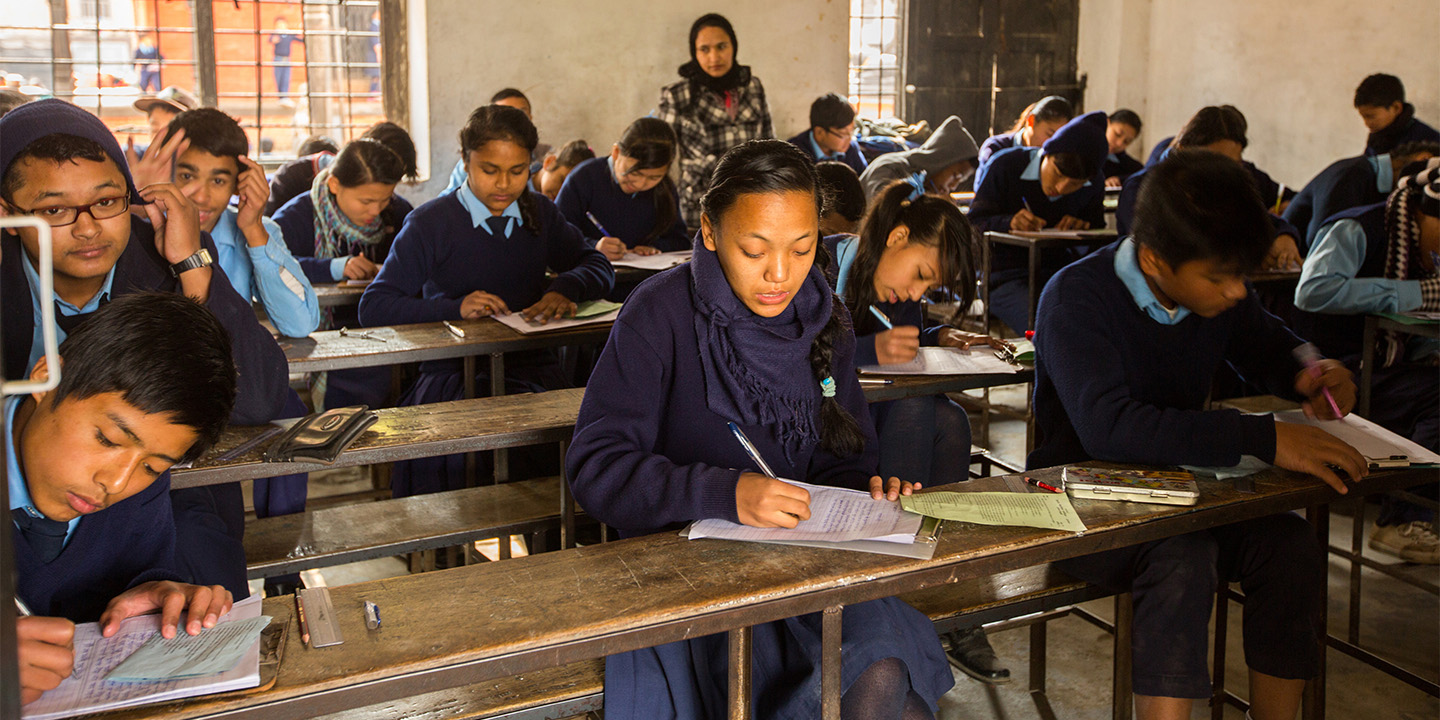
Supporting examination reform in Nepal
Research 24 Jan 2020 4 minute readACER is helping to ensure that school assessment in Nepal focuses on testing higher-order thinking skills.
The education sector in Nepal is preparing for an unprecedented shift following the country’s transition to federalism in 2015 and subsequent Education Act amendment. Large-scale reorganisation of administrative systems has resulted in a series of reforms, including to examinations, one of the main areas identified for improvement.
Following the amendment of 2016, basic education in Nepal covers grades one to eight, with admission into secondary education based on an exam at the end of grade eight. The amendment led to the establishment of the National Examination Board (NEB) to oversee the standardisation of these examinations, as well as those conducted during secondary school, at various administrative levels.
Among the reforms to Nepal’s examinations system is the decentralisation of the administration of grade eight examinations to local governments. In March 2018, grade eight examinations were conducted by 753 local governments in the country for the first time. Challenges faced included limited coordination between NEB, Curriculum Development Centre (CDC) and local governments, and lack of strong monitoring mechanisms and comprehensive documentation of the examinations at the federal level.
In August 2018, the Asian Development Bank (ADB), under the School Sector Development Plan (SSDP), commissioned the Australian Council for Educational Research (India) to provide technical expertise in reforming and improving the grade eight School Education Examination − the academic level at which students complete basic education in Nepal.
An ACER assessment expert visited Nepal in September 2018 to conduct scoping activities, perform a situational analysis involving key agencies and make recommendations based on the evaluation.
Following administrative turmoil in Nepal, in December 2019 ACER India submitted a draft assessment framework for the grade eight examination covering three test subjects − English, mathematics and science − in order to support ADB in its discussions with NEB.
The draft assessment framework recommended two major reforms:
- Standardisation of the examination by adopting a scientifically rigorous approach based on Item Response Theory (IRT). This approach will help prevent fluctuation of examination results across years.
- The inclusion of higher-order thinking skills questions in the examination. The current style of testing relies heavily on questions dependent on the kind of rote-learning that does not support technology enabled 21st century learning. This recommendation aims to bring about broader changes in teaching and learning practices in Nepal by gradually introducing test items that require analysing, evaluating, synthesising, critical thinking and problem-solving.
Once NEB finalises the assessment framework, ADB plans to further support the reform efforts with the assistance of ACER India. This work may include capacity-building in item development, pilot testing, psychometric data analysis and creating an item bank for local governments to draw upon. Nepal’s ongoing transition towards the assessment of higher-order thinking skills will be an interesting and worthwhile process to observe.
